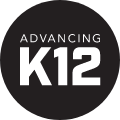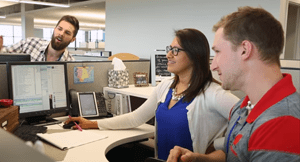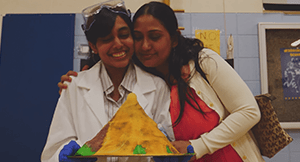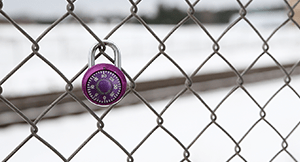Guest Post: Why We Do What We Do in the School Business Office
BY Brian Adesso
The answer to the "why" is easy; in the business office, we do what we do to provide the best possible environment for the students who cross our doorsteps each and every day. Sometimes, we get caught up in the operational side of running a school district and drift into believing that our job just deals with operations. I entered this year on a mission – I was going to step back and spend some time around the students we serve.
The idea of immersing myself in the learning environment was a very intriguing conundrum for me. A year or two ago I heard a fellow business manager talk about his experience doing just that. I was very impressed and, frankly, a little upset with myself because I realized that I was not making time to do what really matters. I wasn’t experiencing our school district from the students’ perspective. How can we be sure that we’re making a positive impact on our school communities if we don’t spend some time on the front lines?
I told myself after my long summer break (you know – that time when everyone thinks we’re on vacation, but we’re really working our tails off to get ready for an audit, manage our budgets, and tackle the many projects that go on during the summer months) that this school year was going to be different. I was going to take the leap and get into the schools right from the start. It was going to be a top priority.
In early August, I started to plot my year and schedule things on my calendar to guarantee that this new journey was actually going to happen. I scheduled myself for the little things that I knew would help me see the big picture: getting into every cafeteria within the district, riding the bus in the morning and afternoon, and building relationships with some teachers in the district in the hope of joining their classrooms.
I’m happy to report that my experience riding the bus has been both educational and eye opening. Somehow, I managed to get placed on one of the more challenging buses within the district. The students were very energetic and vocal. Each day that I rode on the bus I got to know a little more about the students, starting with their names. Then, a funny thing happened: Once I knew their names, I found that they were better behaved and they wanted to talk to me about their school days and their lives.
Another positive that came from this experience has been the aftermath. When I see those same students in school and they smile and say hello to me, it validates every minute I spent on the bus! I knew that being present would make a difference, but I didn’t realize how much of an impact that little bit of time could make for so many kids. I have seen these interactions making a positive impact, and I know I’m doing the right thing.
I was also able to fulfill my goal of visiting our cafeterias. Now, before I get into details, I want to preface this section by saying I am a food guy. That makes it easy for me to talk with the students about what they think of lunch that day. For the most part, I’ve been getting answers like “it was really good!” and “I can’t wait to have that meal again.” In a couple of instances, the feedback wasn’t quite so positive. One comment that stood out to me was “the potatoes had no flavor…they need salt and pepper.” Needless to say, this was very helpful.
I want our students to enjoy the nutritional lunches we provide, so the chance to hear honest and direct feedback right from the source is invaluable. This has given me the opportunity to reflect on what I could change within our food service program. For instance, if we can provide pepper to the kids, or possibly some nutritional yeast (the latter tastes like cheese, for those who haven’t tried it) to add more flavor to products that usually have more salt than allowed, it might boost nutritional intake and satisfaction. As you can probably imagine, the students were also free with suggestions about what we should be serving more often.
But food ideas weren’t my only takeaways from the cafeteria. One of the surprising lessons I re-learned while spending lunchtime with the kids was how important it is for students to decompress and relax for a brief period during the school day.
The final experience on this quest is one I am anxiously anticipating – getting into the classroom. If all goes well, this will happen for me sometime in the next month. Our superintendent has asked the entire administrative team to shadow a middle school student for the day. Truly, I cannot wait for this experience.
How do I find the time to do this without losing any ground in my regular duties? It’s all about making the experience a priority. Do these forays into the learning environment take up time in my day? Of course. Is it worth every minute? Yes.
I want to stay connected to why I do what I do. Not the technology and the processes, but the students at the heart of it all. And yes, sometimes that means playing catch-up at times outside of the typical workday, but better that than the disconnect of working on an island.
I will end by challenging all of you to try to ride a bus, get into a cafeteria, and get into the classrooms. Reconnect with what really matters and bring a fresh perspective to the office. Share your stories with the rest of your team and watch your entire culture change for the better. Let’s start chipping away at the divide that separates the business office from the mission of our school districts.
Check out this video to learn more about the business side of K-12 education and the technology that drives it.
WHAT'S NEXT FOR YOUR EDTECH? The right combo of tools & support retains staff and serves students better. We'd love to help. Visit skyward.com/get-started to learn more.

|
Brian Adesso Director of Business Services, Menasha JSD |




